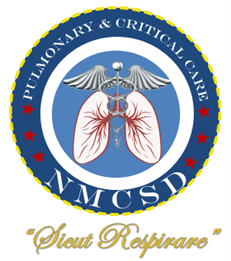Specifically devised for Pulmonary Critical Care fellows, this policy encompasses a plan by which fellows should progressively assume increasing patient care responsibilities throughout their rotations in the Intensive Care Unit (ICU). This gradual escalation aims to nurture a sense of responsibility, initiative, and growth towards independent decision-making respecting the highest standards of patient care. Regular evaluations will measure fellows’ clinical judgment, procedural skills, medical knowledge, communication and teamwork, and commitment to continuous learning.
First-Year Fellow Policy for ICU Rotations: During the initial stages of the fellowship, first-year fellows focus on learning ICU medical procedures, patient safety, decision-making processes, and critical aspects of patient care. While the supervising staff overlooks the first ICU rotation as with a senior resident, fellows will gain progressively more independence based on demonstrated competencies. But first-year fellows must always consult their supervising staff before implementing treatments or making decisions. They will also lead teams with supervisor oversight, including bedside teaching and running ICU rounds.
Second-Year Fellow Policy for ICU Rotations: Second-year fellows should utilize their accumulated knowledge in patient care, operating with degrees of supervision. These fellows should diagnose and treat most patients admitted to the medical ICU independently but consult faculty for severe or newly intubated patients, or before refusing patient admission.
Third-Year Fellow Policy for ICU Rotations: By the third year, fellows should attain advanced proficiency in ICU practices, handling patient care scenarios independently while seeking supervision when necessary. They should manage simpler tasks and decision-making with indirect supervision but execute high-risk or complex procedures with direct supervision. They should also demonstrate leadership by guiding junior fellows or residents in simpler tasks, preparing them for independent practice of Pulmonary and Critical Care Medicine.
Exceptions to Progressive Responsibility: Regardless of their training year, fellows must always notify the staff prior to accepting any inter-facility transfers, due to potential administrative implications. Moreover, they are required to immediately alert the staff about any unexpected complications, rapid patient deterioration, deaths, or changes in resuscitation status following patient admission.
